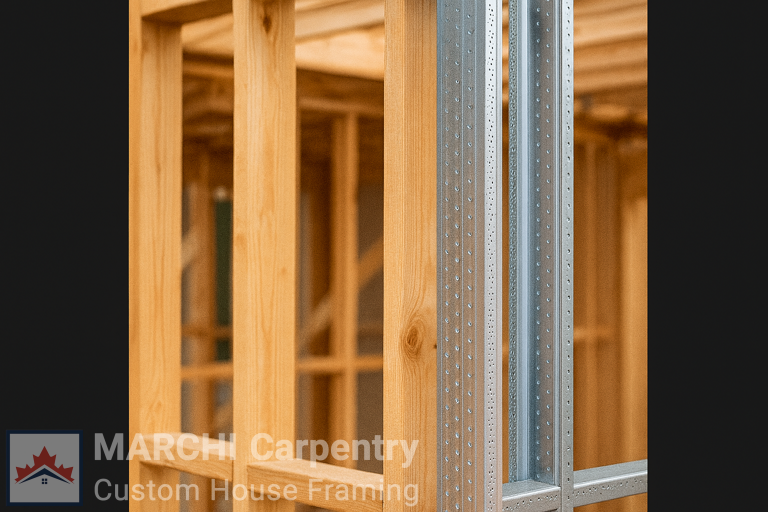In recent years, many companies have shifted toward metal stud framing instead of traditional wood.
But is this change really cost-effective, or is it just a trend driven by large-scale builders and prefabrication?
I’m Zei, founder of Marchi Carpentry. With over 15 years of hands-on framing experience across Canada, Japan, and Sweden, here’s my honest take from the job site.
What Is Metal Stud Framing?
Metal studs are lightweight galvanized steel profiles often used for non-load-bearing interior walls. Lately, we’ve seen them creeping into residential construction too — especially in multi-unit or high-volume builds.
✅ Pros of Metal Stud Framing
-
Factory precision: Clean, straight cuts with minimal warping
-
Pest, mold & fire resistance
-
Efficient in large-scale commercial or modular builds
⚠️ But Here’s the Catch…
1. It’s Expensive
A single metal stud often costs 2 to 3 times more than a standard piece of lumber especially in load-bearing applications.
2. Slower to Install
Unlike wood, which you can cut and shoot in place, metal framing requires more steps: precise cuts, screws, specialized tools, and often off-site fabrication.
3. Complicated Assembly
Metal frames require more connectors, technical know-how, and detailed layouts. There’s less flexibility for on-site adjustments.
4. Feels Commercial
Metal framing fits better in offices, commercial units, and high-rises. It lacks the warm, organic feel of a wood-framed home.
Why We Still Stand by Wood Framing
-
✅ More cost-efficient
-
✅ Faster on-site execution
-
✅ Easier access to materials and skilled labor
-
✅ Proven long-term performance in Canadian homes
Marchi’s Take
At Marchi Carpentry, we continue to trust traditional wood framing for residential builds. It offers the best balance of speed, cost, durability, and comfort — especially when precision and craftsmanship matter.
Have questions about your next framing project?
We’d be happy to walk you through it. [Contact Us]

